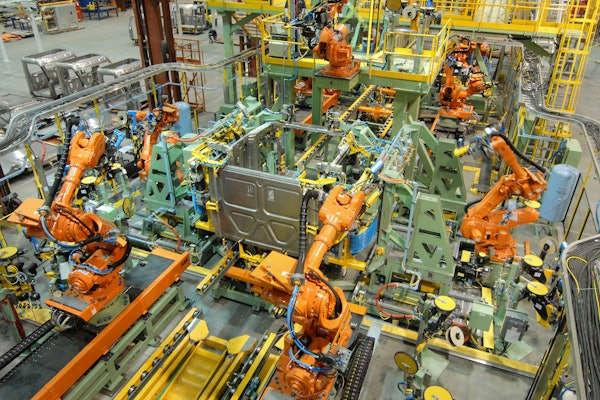Trucking news and briefs for Tuesday, April 7, 2020:
Trucking employment dropped by just 200 jobs in March
Though the U.S. economy had its worst month in over decade in terms employment in March, posting the first month-to-month loss in total jobs since the Great Recession more than 10 years ago, trucking was mostly unscathed in terms of job losses.
Truck transportation dropped by just 200 jobs, according to the Department of Labor’s monthly employment report. The U.S. economy overall lost more than 700,000 jobs in the month, with over half of those, unsurprisingly, coming from the hospitality and leisure sector. With those losses, the country’s unemployment rate leapt from 3.5% to 4.4%.
For trucking, 200 jobs is largely considered flat month to month, with the industry regularly posting gains or losses much larger than that. For instance, last August, the for-hire trucking industry dropped nearly 4,000 jobs in a single month, according to DOL data. Likewise, in December 2019, the industry lost 3,400 jobs. In February, the trucking added 1,100 jobs.
However, according to CCJ survey data, 23% or carriers reported already having to reduce their driving workforce, so next month’s employment numbers might paint a different picture.
DOT temporarily allowing food trucks at rest areas
The Federal Highway Administration is suspending the enforcement of regulations that prohibit commercial food trucks from operating and selling food at interstate rest areas to give truck drivers more food options on the road during the COVID-19 pandemic.
The agency says it recognizes that food trucks “may provide vital sustenance for interstate commercial truck drivers and others who are critical to the nation’s continued ability to deliver needed food and relief supplies” amid the coronavirus pandemic.
If states determine that allowing food trucks to operate and sell food at rest areas is necessary, FHWA says it will not take any enforcement action against the state. States must come back into compliance with the regulations when the national emergency declaration ends.
“America’s commercial truck drivers are working day and night during this pandemic to ensure critical relief supplies are being delivered to our communities,” said FHWA Administrator Nicole R. Nason. “I am grateful to our state transportation partners for bringing this idea to the department and for their leadership in thinking outside the box. It is critical to make sure truck drivers continue to have access to food services while they’re on the job serving our nation during these challenging times.”
C.H. Robinson donates $50k to trucker relief fund
The St. Christopher Truckers Relief Fund announced Monday it received a $50,000 donation from C.H. Robinson – one of the largest donations the nonprofit has received.
Donations to SCF help provide financial assistance to ill or injured truck drivers in the form of direct payments to providers for household expenses, including mortgages/rent, utilities, vehicle payments and insurance.
“Alongside all the healthcare workers, truck drivers on the road right now are true heroes, battling this virus on the frontlines,” stated SCF Executive Director Dr. Donna Kennedy. “Within the next two weeks we expect to see a significant increase in truckers contracting the coronavirus, many of which do not have healthcare coverage or the financial means to support their families.”
Cummins helping address N95 respirator mask shortage
Cummins is partnering with DuPont during the COVID-19 pandemic to use the companies’ technology to make N95 respirator masks to help address the nation’s shortage.
Cummins’ NanoNet and NanoForce Media technology, which use DuPont’s Hybrid Membrane Technology (HMT), are usually found in air, fuel and lube filters used in heavy-duty diesel engines. Cummins says these technologies can also be used in the N95 respirator masks worn by healthcare workers to filter harmful airborne particles that can spread the coronavirus and other airborne disesases. N95 masks block 95% of particles from entering the wearer’s nose and mouth.
“Cummins is re-evaluating our supply base and manufacturing capabilities to identify how we can support our healthcare professionals who rely on critical personal protective equipment to do their jobs,” said Amy Davis, Vice President of Cummins Filtration. “Our NanoNet Media can fill a key supply void and help address the mask shortage facing the United States and other countries around the world.”
Cummins has worked with the University of Minnesota to create masks using the Cummins-donated media.












